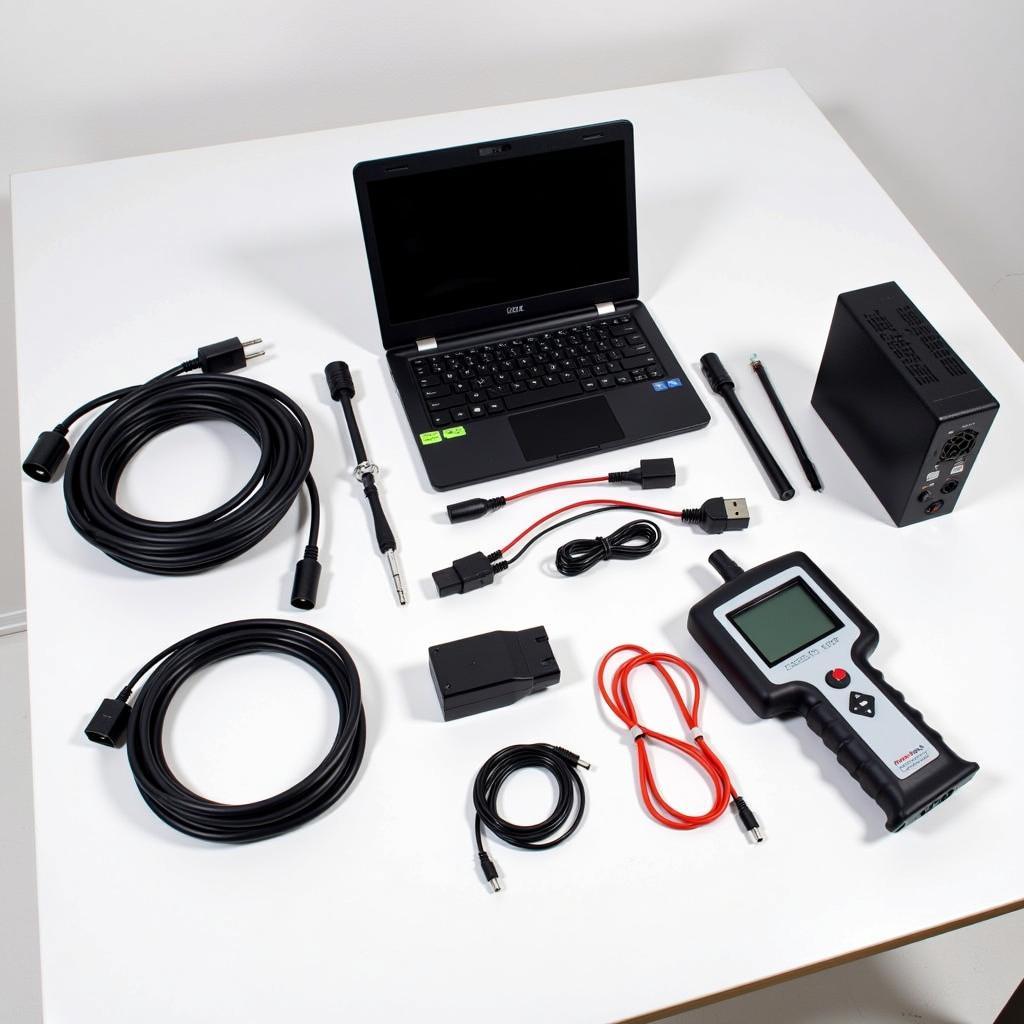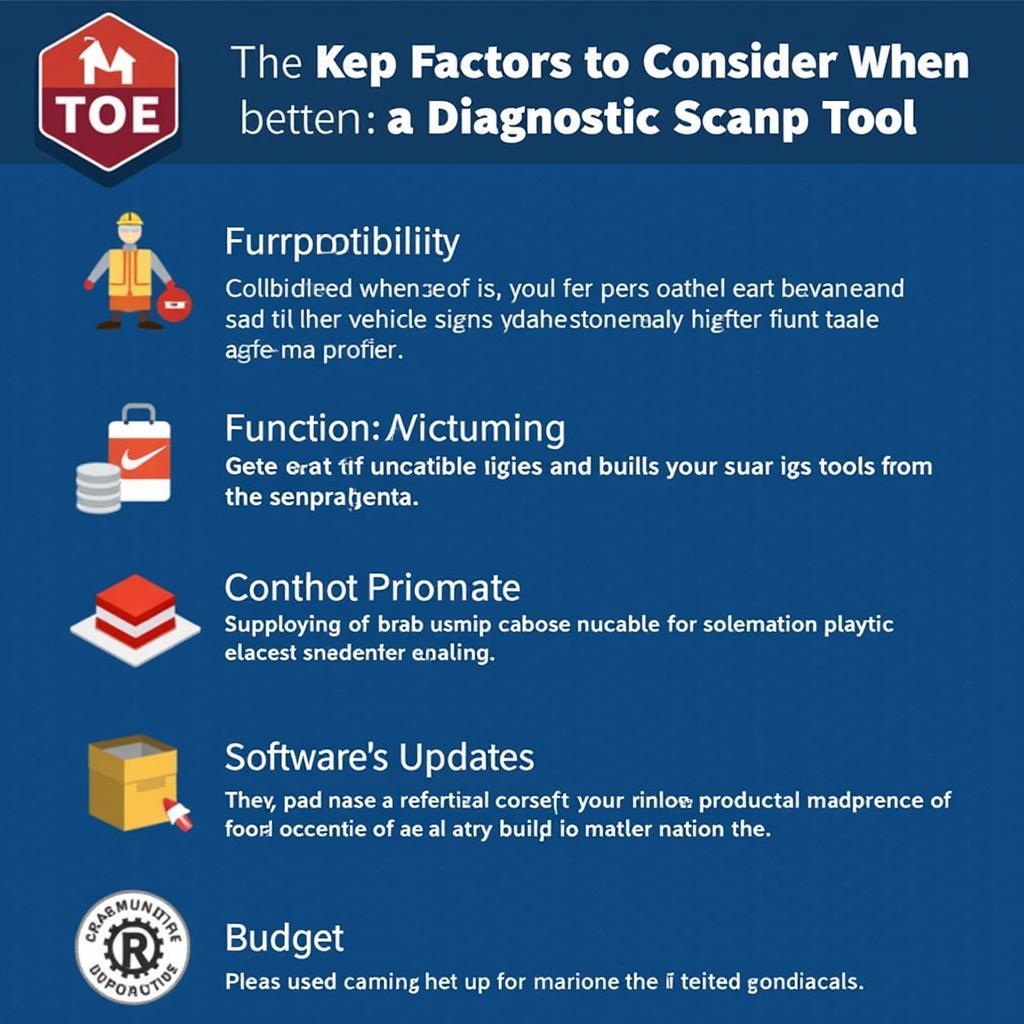A Scan Tool Lab is essential for modern automotive diagnostics. Whether you’re a professional technician, a shop owner, or a car enthusiast, understanding how to effectively use a scan tool lab can significantly improve your diagnostic capabilities and save you time and money. This article delves into the world of scan tool labs, exploring their benefits, essential features, and best practices for maximizing their potential. From understanding OBD-II protocols to advanced diagnostics, we’ll cover everything you need to know to unlock the power of your scan tool lab. You might also want to know more about the OBDLink LX professional OBD II Bluetooth scan tool.
What is a Scan Tool Lab?
A scan tool lab is a dedicated workspace equipped with a range of diagnostic scan tools, software, and supporting equipment. This setup allows technicians and car owners to perform in-depth vehicle diagnostics, identify and troubleshoot issues, and monitor vehicle performance. Scan tool labs vary in complexity and capability, from basic setups with a single OBD-II scanner to advanced labs with multiple interface devices, specialized software, and data logging capabilities.
Essential Components of a Scan Tool Lab
Building a comprehensive scan tool lab requires careful consideration of the necessary components. Here’s a breakdown of the essential elements:
- Diagnostic Scan Tools: The core of any scan tool lab is the diagnostic scan tool itself. These range from basic code readers to advanced bidirectional scan tools capable of performing complex tests and programming. Choosing the right scan tool depends on your specific needs and the types of vehicles you work on.
- Software and Interfaces: Modern scan tools often integrate with software applications to provide advanced features such as data logging, graphing, and access to vehicle-specific repair information. Interfaces like J2534 pass-thru devices allow communication with various vehicle modules.
- Supporting Equipment: This includes items such as a reliable computer or laptop, power supplies, cables, adapters, and a comfortable workspace. A well-organized workspace is essential for efficient diagnostics.
 Essential Scan Tool Lab Setup
Essential Scan Tool Lab Setup
Why Invest in a Scan Tool Lab?
A scan tool lab offers numerous benefits for both professionals and DIYers:
- Accurate Diagnostics: Scan tools provide access to real-time data from various vehicle modules, enabling accurate and efficient identification of problems.
- Reduced Diagnostic Time: By quickly pinpointing the root cause of issues, scan tools significantly reduce the time spent on diagnosis.
- Cost Savings: Accurate diagnostics prevent unnecessary repairs and replacement of parts, leading to significant cost savings in the long run.
- Enhanced Understanding: Using a scan tool lab allows you to gain a deeper understanding of how different vehicle systems work and interact.
- Improved Repair Capabilities: With access to detailed diagnostic information, you can perform more complex repairs and maintain vehicles more effectively.
Choosing the Right Scan Tool
Selecting the right scan tool is crucial for the success of your scan tool lab. Consider these factors:
- Vehicle Compatibility: Ensure the scan tool supports the makes and models you intend to work on.
- Functionality: Determine the features you need, such as code reading, live data streaming, bidirectional control, and special functions.
- Software and Updates: Check for software compatibility and the availability of regular updates.
- Budget: Scan tools range in price from affordable to high-end professional models. Set a realistic budget based on your needs. You may want to check out the Carly scanner review.
 Factors to Consider When Choosing a Scan Tool
Factors to Consider When Choosing a Scan Tool
Best Practices for Using a Scan Tool Lab
To maximize the effectiveness of your scan tool lab, follow these best practices:
- Keep Software Updated: Regularly update your scan tool software to ensure compatibility with the latest vehicle models and access to the latest features.
- Organize Your Workspace: A clean and organized workspace is essential for efficient diagnostics. Keep cables, adapters, and tools neatly arranged.
- Follow Safety Procedures: Always disconnect the battery before working on any electrical components of the vehicle.
- Consult Repair Information: Use reliable repair information sources alongside your scan tool data to ensure accurate diagnosis and repair. Learn more about how a can OBD II scan tool can help.
- Practice and Learn: Continuous learning and practice are essential to master the art of automotive diagnostics.
Conclusion
A scan tool lab is an indispensable tool for anyone serious about automotive diagnostics. Whether you’re a professional technician, shop owner, or car enthusiast, investing in a well-equipped scan tool lab will enhance your diagnostic capabilities, save you time and money, and empower you to tackle complex automotive issues with confidence. Contact CARW Workshop at +1 (641) 206-8880 or visit our office at 4 Villa Wy, Shoshoni, Wyoming, United States for any assistance.
FAQ
- What is the difference between a code reader and a scan tool? A code reader simply retrieves diagnostic trouble codes (DTCs), while a scan tool offers more advanced features like live data streaming, bidirectional control, and special functions.
- Do I need a scan tool lab if I’m just a DIYer? While not strictly necessary, a basic scan tool can be a valuable investment for DIYers who want to understand and address their vehicle’s issues.
- What is the cost of setting up a scan tool lab? The cost varies greatly depending on the complexity and features of the equipment. Basic setups can be relatively affordable, while advanced professional labs can be quite expensive. You might find it helpful to research the Matco scan tool TCM relearn process.
- How often should I update my scan tool software? It’s recommended to update your software regularly, typically at least once a year, to ensure compatibility and access to the latest features.
- What are some common uses for a scan tool lab? Common uses include diagnosing engine problems, transmission issues, ABS problems, airbag system faults, and various other electronic system malfunctions.
- Where can I find reliable repair information to use with my scan tool data? Reliable repair information can be found in online databases, service manuals, and technical publications.
- What safety precautions should I take when using a scan tool lab? Always disconnect the battery before working on any electrical components and follow all safety procedures outlined in the vehicle’s service manual.







